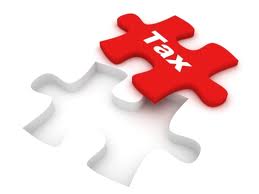Many individuals (and businesses) buy stock and securities with the hopes and intent of the securities appreciating and perhaps paying interest or dividends. What determines when an individual is treated as an investor, dealer or trader? Furthermore, what is the tax treatment and proper way to report income and expenses when one is classified as an investor, dealer or trader? The article below has been prepared by a tax attorney to provide information related to the above issues and questions. Please remember to always discuss your specific facts and circumstances with your tax attorney and tax advisors, as this article is for informational purposes only.
The Internal Revenue Service applies different definitions and meanings to the terms investors, dealers and traders. Thus, we will begin with an explanation as to these terms. An investor would typically buy and sell securities in anticipation of the securities appreciating, as well as producing other returns such as interest or dividends. In short, the investor would buy a security and hold the security for personal investment as opposed to conducting these activities in a trade or business. Generally, the investor would hold the securities for themselves and for a substantial period of time. When an investor sells or disposes of the securities, the transactions are reported as capital gain or capital loss on the investors 1040 via a Schedule D. As an investor, capital loss limitations under IRC Section 1211(b) would apply as well as wash sale rules under IRC 1091. Investors may be able to deduct expenses associated with creating the taxable income on their Schedule A itemized deductions. Further, interest paid for money to buy investment property that generated taxable income may be deducted. The cost of commissions and other related fees to dispose of the stock are not deductible but should be accounted for in calculating the gain or loss from the sale or disposition of the securities.
A dealer will differ from an investor in that a dealer will purchase and hold securities for their customers and conduct these activities in the ordinary course of the dealer’s business. The dealer may hold an inventory of securities. The dealer will make their money and income by marketing securities to their clients. A dealer will report gains and losses from the disposition of securities by applying and using market-to-market rules.
Apart from being designated as an investor or dealer, special rules can apply when you are determined to be a trader in securities. In short, a trader would be considered to be in the business of buying and selling securities for your own account. Under certain circumstances you could be considered to be a business even if you do not hold an inventory and maintain customers. The IRS could consider you to be in business as a trader in securities if you meet the following conditions:
- The activity is substantial;
- You are attempting to profit from daily market movements if the pricing of securities and not so much from appreciation, interest or dividends; and,
- The activity is practiced with continuity and regularity.
If you are a trader in securities you can report your income and expenses on a Schedule C with your 1040 and thus Schedule A limitations would not apply, and further, the gains and losses from selling securities are not subject to self-employment tax.
The article above has been prepared by John McGuire of The McGuire Law Firm. John is a tax attorney and business attorney with the firm and can be reached at John@jmtaxlaw.com
